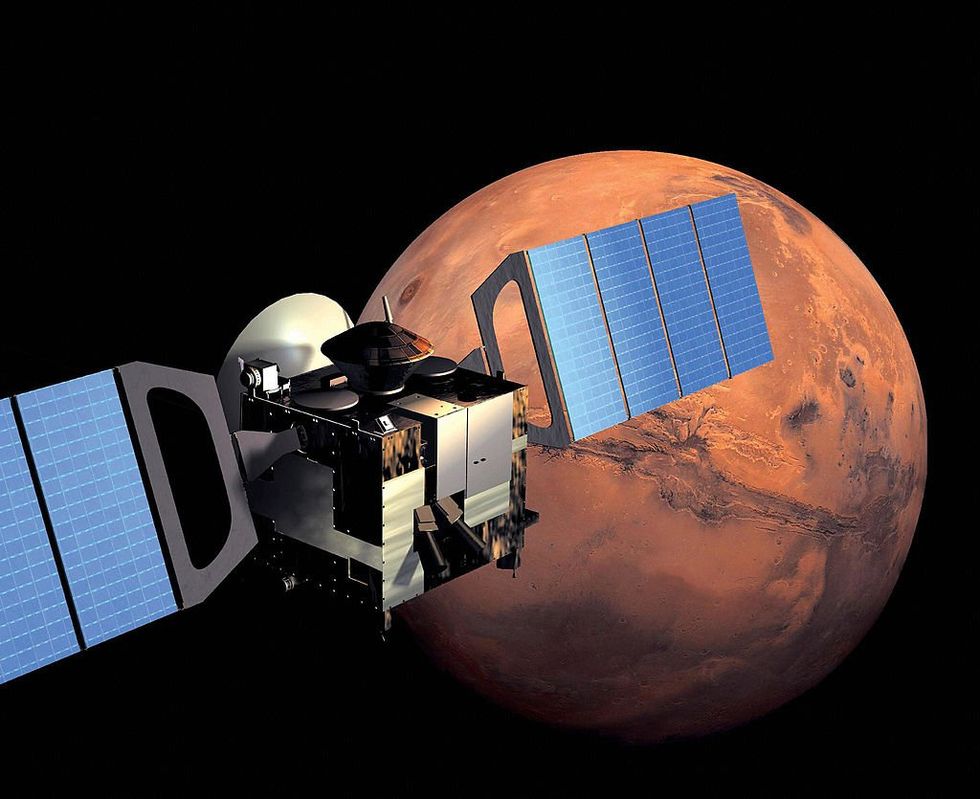Elon Musk’s Starship is ready for Mars, but who will ensure it’s a planet for humans?

In a recent post at X, Elon Musk issued a dire warning. Starship, the biggest vehicle in the SpaceX fleet, “will make life multiplanetary,” he wrote, “preserving life … from extinction events on Earth, so long as it is not smothered by bureaucracy.”
“There is more government regulatory smothering every year. If this continues, all large projects in the United States will be illegal,” he wrote, pointing to California’s cursed high-speed rail boondoggle as a typical cautionary tale.
“The Department of Government Efficiency is the only path to extending life beyond Earth,” he concluded, referencing the would-be agency (bearing the not-so-coincidental acronym DOGE) Musk himself would lead in a second Trump administration with a mandate to slash Washington’s Borg-like mass of managers and bureaucrats.
It wouldn’t be the first time the road to hell was paved with good intentions. The more potent the tools, the more grandiose the intentions; and the more prideful they are, the harder they fall.
Musk’s message is a bright spot for many in an increasingly grim era. Today’s bureaucrats aren’t just stifling the major infrastructure and transportation projects that were the hallmark of America’s postwar golden age. They’re pinching off the lifeblood of American culture and commerce in a broader sense: enforcing speech codes, degrading and decreasing the food supply, inflating away savings, eroding the rule of law, and tightening the noose of social and financial surveillance. They’re becoming the only branch of government with the power to eclipse all the others.
Against the agenda to destroy family formation, childbirth, land ownership, home ownership, and physical and mental health, Musk has distinguished himself as conspicuously pro-natalist, pro-growth, and pro-freedom — all elements of what we’re led to imagine life on Mars would be like if Starship indeed starts ferrying pioneers to the Red Planet.
But with increasingly dystopian technology spreading far and wide and a huge share of technologists actively working toward building ultra-intelligent machines and planetary computers, it would be nice if an American rose to prominence with a clarion call to ensure that, if life is to spread beyond Earth, human life is not swiftly left behind and replaced by the kind of cyborg collective that epitomized villainy in the “Star Trek” universe, the kind that our home-world bureaucrats are themselves becoming.
It’s all too easy to see how the wide-eyed wonder coming out of many leading futurists about opening the stars to the light of consciousness could lead to Mars becoming ground zero for communist colonies of people who want nothing more than to merge with each other and their supersmart machines — not just mega-computers underground but drone swarms, nanobots, virtual demigods, and on and on. Our technologically hybrid age, wherein leading visionaries hope to fuse the worship of human imagination with that of machine memory into a universal New Age religion, has put Americans at shocking risk of being mutated into a hyper-powered version of the USSR’s “New Soviet Man” ideal — a posthuman superbeing at once master of, and servant of, his machines.
There’s also the “oops” factor to contend with. Mars colonists might show up devoted in theory to adding more red-blooded humans to the universe only to discover over time that they wound up naively or foolishly doing things that led to the conquest of the planet by intelligences unfriendly or disrespectful toward the continued dominance — or even existence — of “merely” human beings that are born, live, and die in the manner given to us from the beginning. It wouldn’t be the first time the road to hell was paved with good intentions. The more potent the tools, the more grandiose the intentions; and the more prideful they are, the harder they fall.
Some would argue that today’s situation is so bad on Earth or in America that we have to blast out of the grip of the bureaucrats and figure the rest out later. Perhaps this is true, or at least understandable, even if debatable or simply wrong. But if so, while some of us are hard at work on the blasting, others really must concentrate on the lasting — bearing witness to the precious and sacred character of our given human being, and warning, in proper prophetic tradition, that the swiftest and surest way to lose that character is by turning our face from God.







